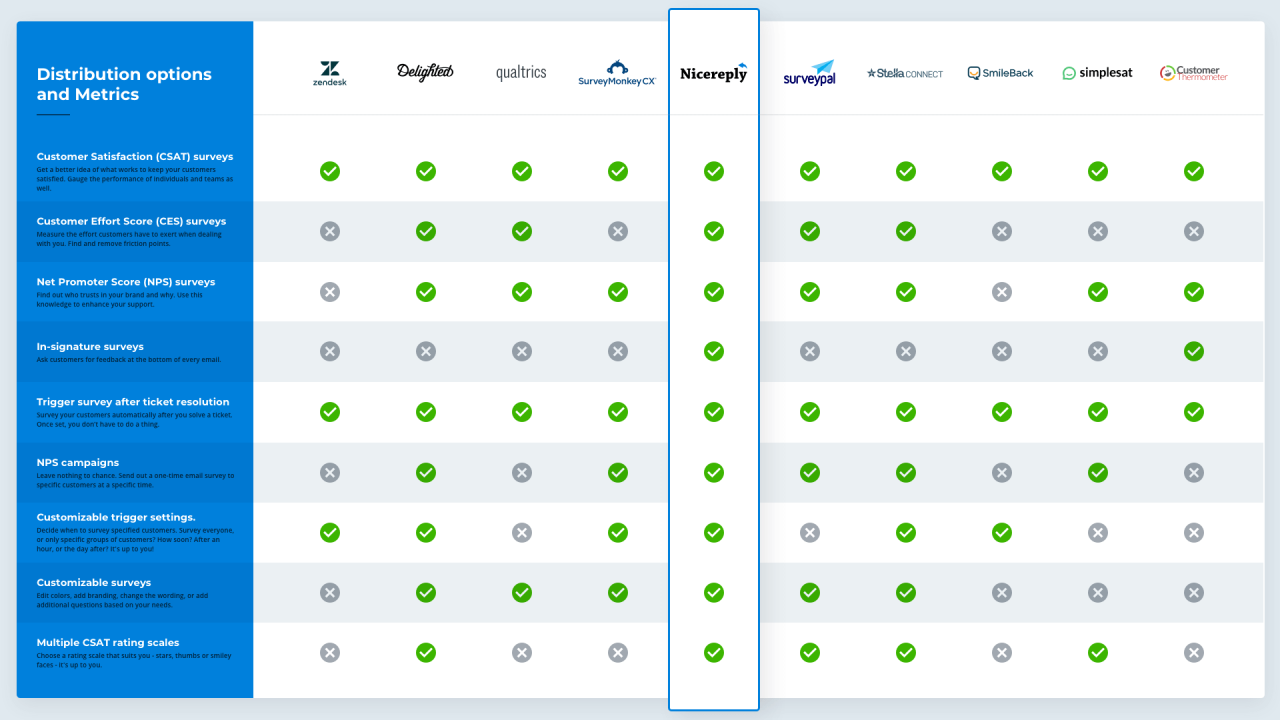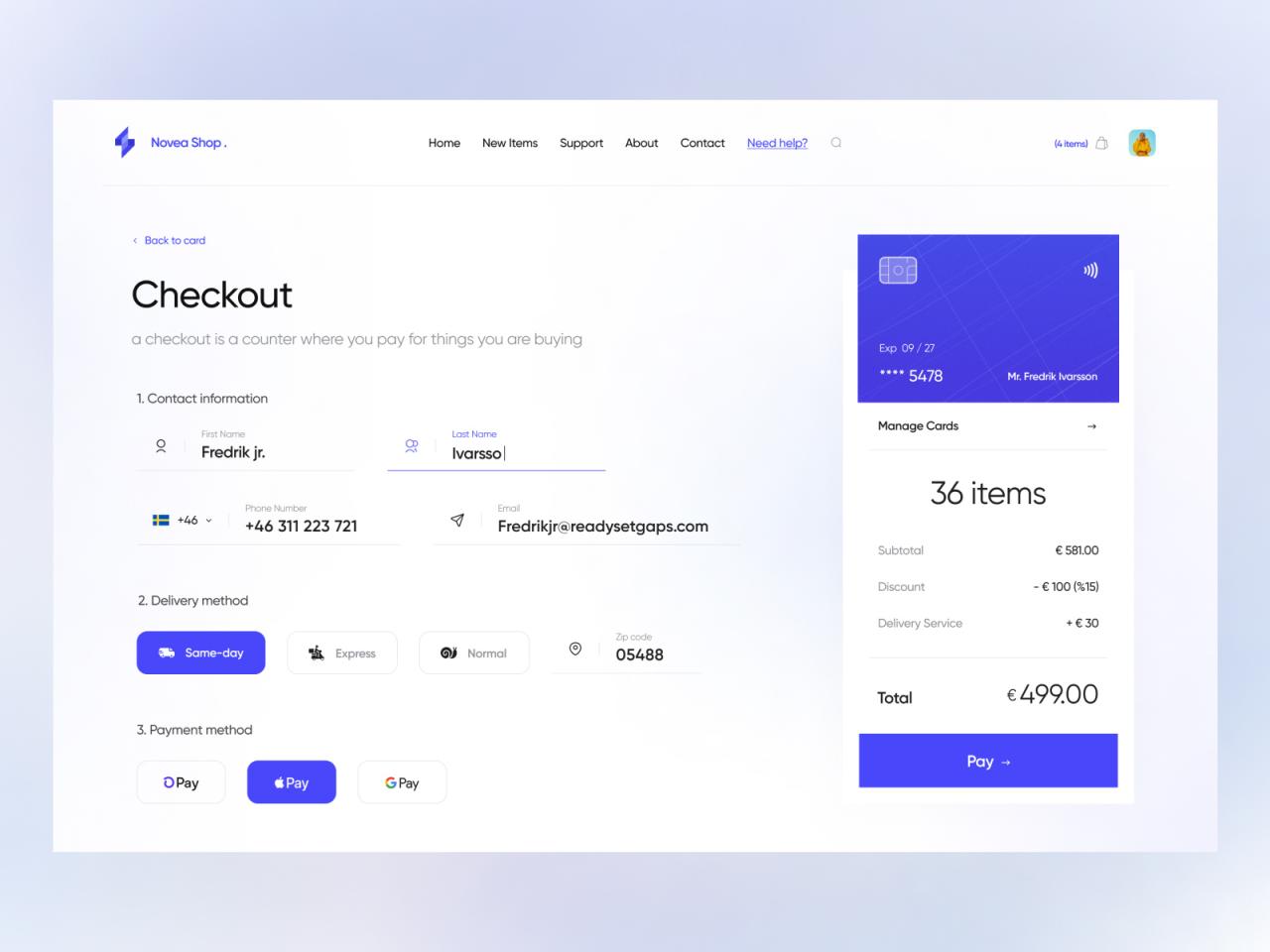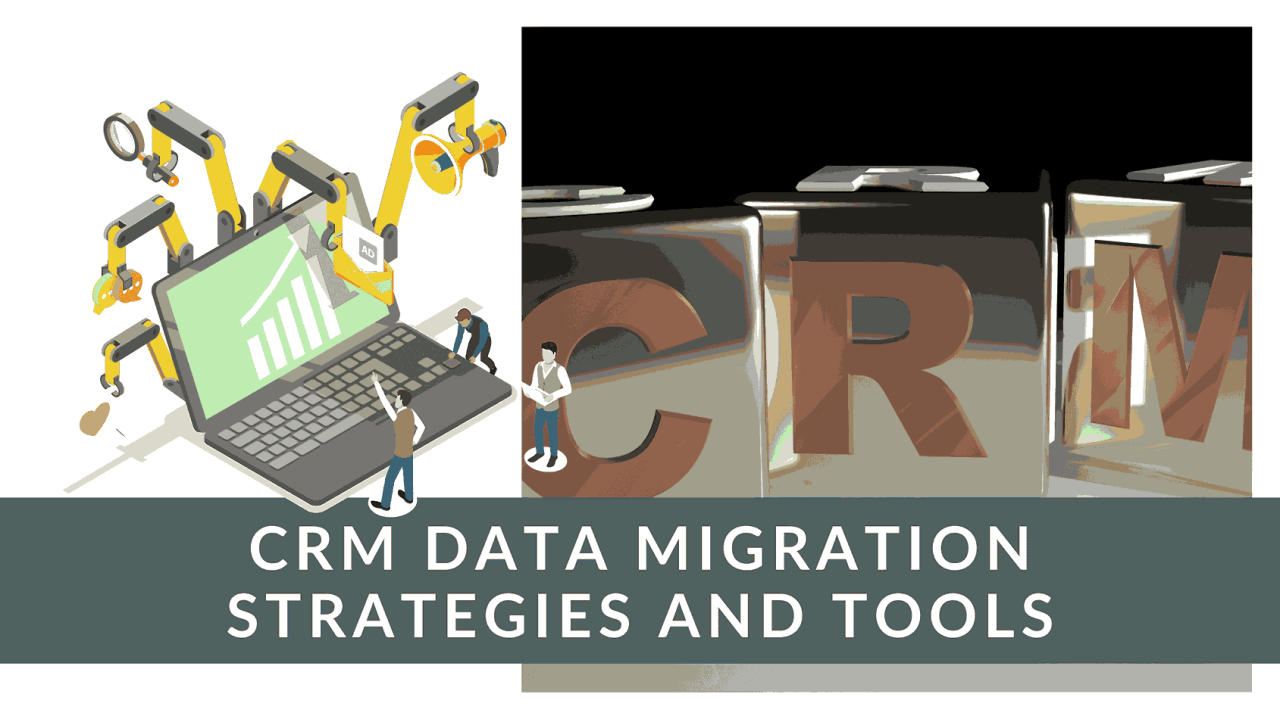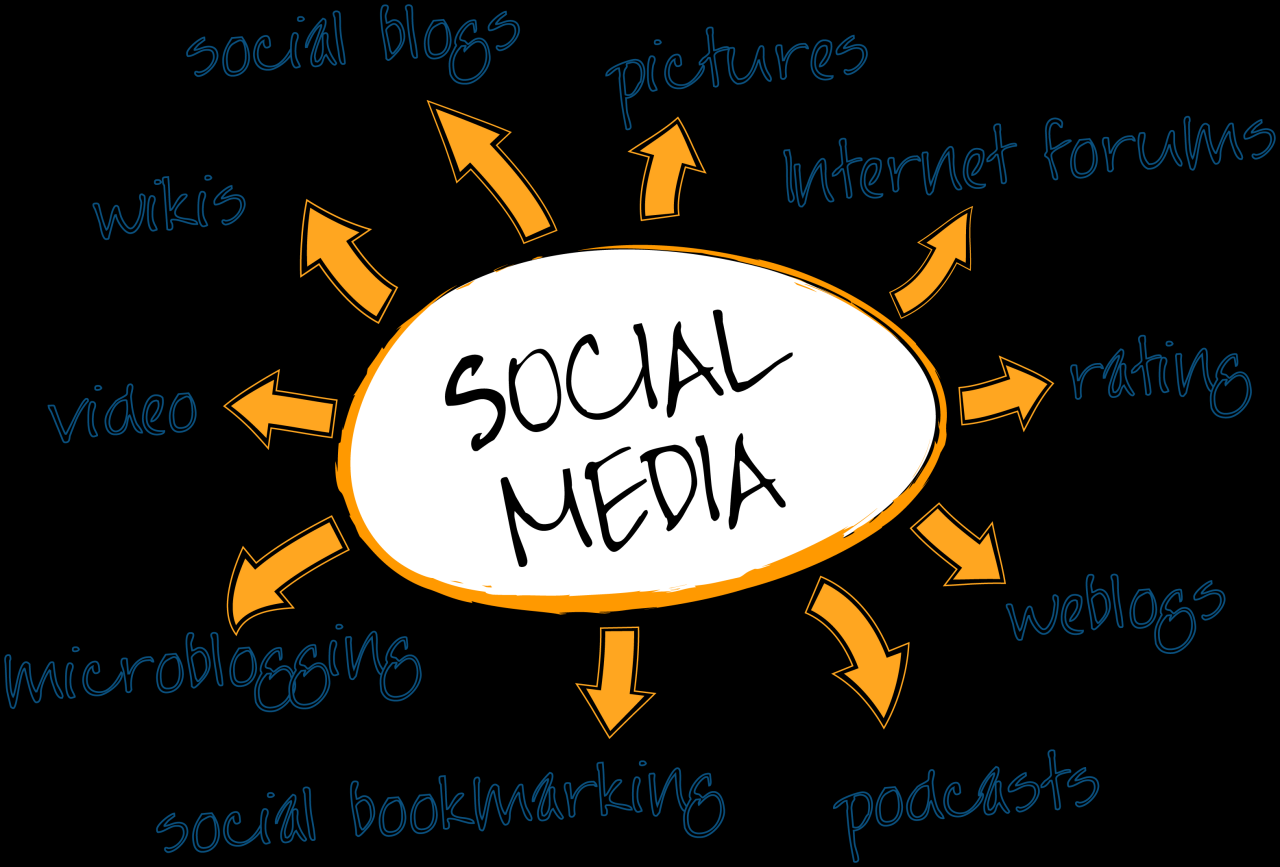Social Media Engagement Metrics
Social media engagement metrics set the stage for this enthralling narrative, offering readers a glimpse into a story that is rich in detail and brimming with originality from the outset. Dive into the world of social media metrics and discover the keys to unlocking digital marketing success.
Understanding Social Media Engagement Metrics
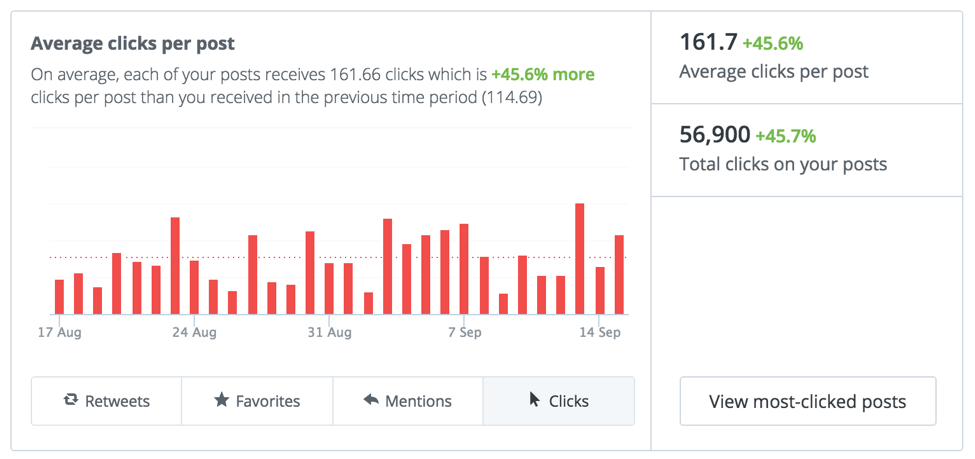
Social media engagement metrics are key performance indicators used to measure the level of interaction and involvement that users have with a brand’s content on social media platforms. These metrics are crucial in evaluating the effectiveness of a digital marketing strategy and determining the success of social media campaigns.
Types of Social Media Engagement Metrics
- Likes: This metric indicates the number of users who have shown appreciation for a post by clicking the like button. It reflects the positive sentiment towards the content.
- Comments: Comments signify the level of engagement as users are actively interacting with the content by leaving feedback, asking questions, or sharing their thoughts.
- Shares: The share metric measures the number of times a piece of content has been shared by users, extending its reach to a wider audience.
- Click-through Rate (CTR): CTR measures the percentage of users who clicked on a link included in the post, showing interest in learning more about the content.
Examples of Social Media Platforms and Their Engagement Metrics
- Facebook: Tracks likes, comments, shares, reactions, post reach, and engagement rate.
- Instagram: Monitors likes, comments, shares, saves, reach, and impressions.
- Twitter: Measures likes, retweets, replies, mentions, clicks, and hashtag performance.
- LinkedIn: Focuses on likes, comments, shares, followers, profile views, and engagement rate.
Key Social Media Engagement Metrics
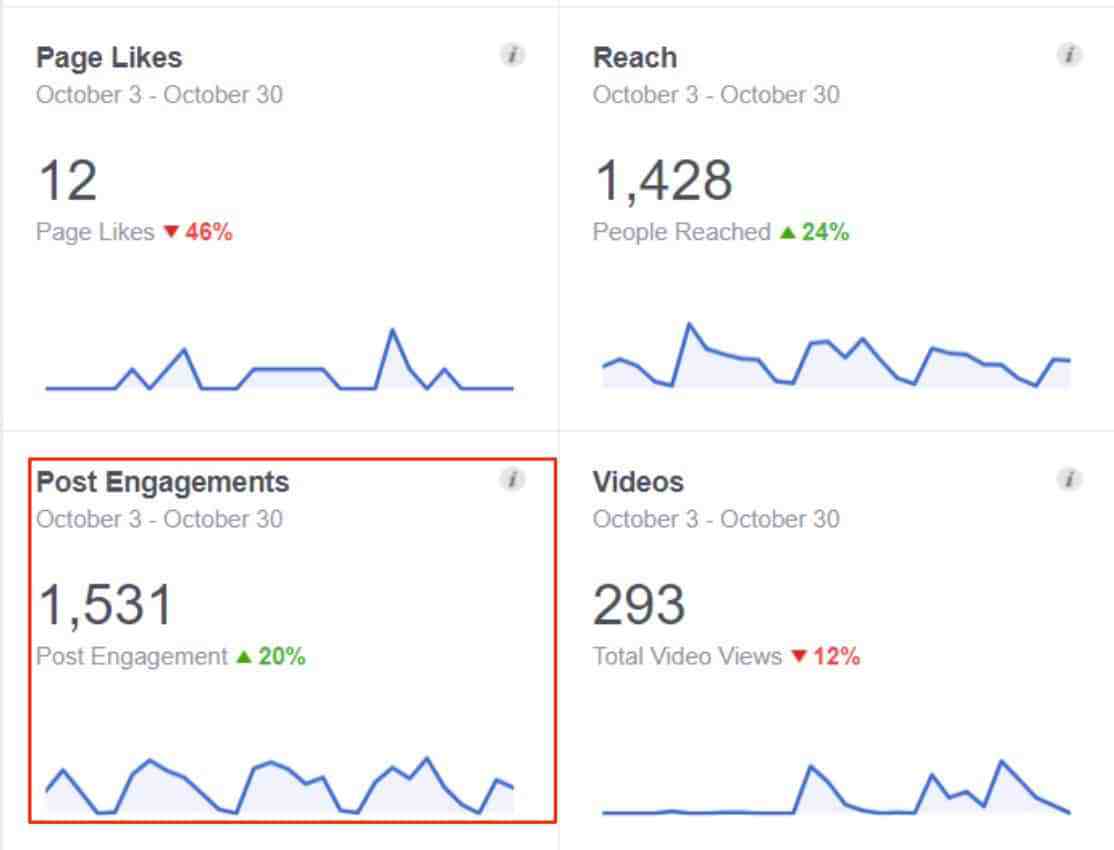
When it comes to measuring the success of your social media efforts, key engagement metrics play a crucial role in providing insights into audience interaction and content performance. Likes, comments, shares, and saves are essential metrics that help you understand how your audience is engaging with your content.
Importance of Likes
Likes are a simple yet powerful way for your audience to show appreciation for your content. Each like represents a positive interaction and can help you gauge the overall sentiment towards your posts.
Importance of Comments
Comments provide valuable feedback and insights from your audience. They can help you understand what resonates with your followers, spark conversations, and build a sense of community around your brand or content.
Importance of Shares
Shares indicate that your content is valuable enough for your audience to share it with their own network. It helps increase your reach, visibility, and credibility, as shared content is often seen as more trustworthy and reliable.
Importance of Saves
Saves are a strong indicator of content relevance and value. When someone saves your post, it shows that they want to revisit it later or refer back to it, making it a valuable piece of content in their eyes.
Tools for Monitoring Social Media Engagement
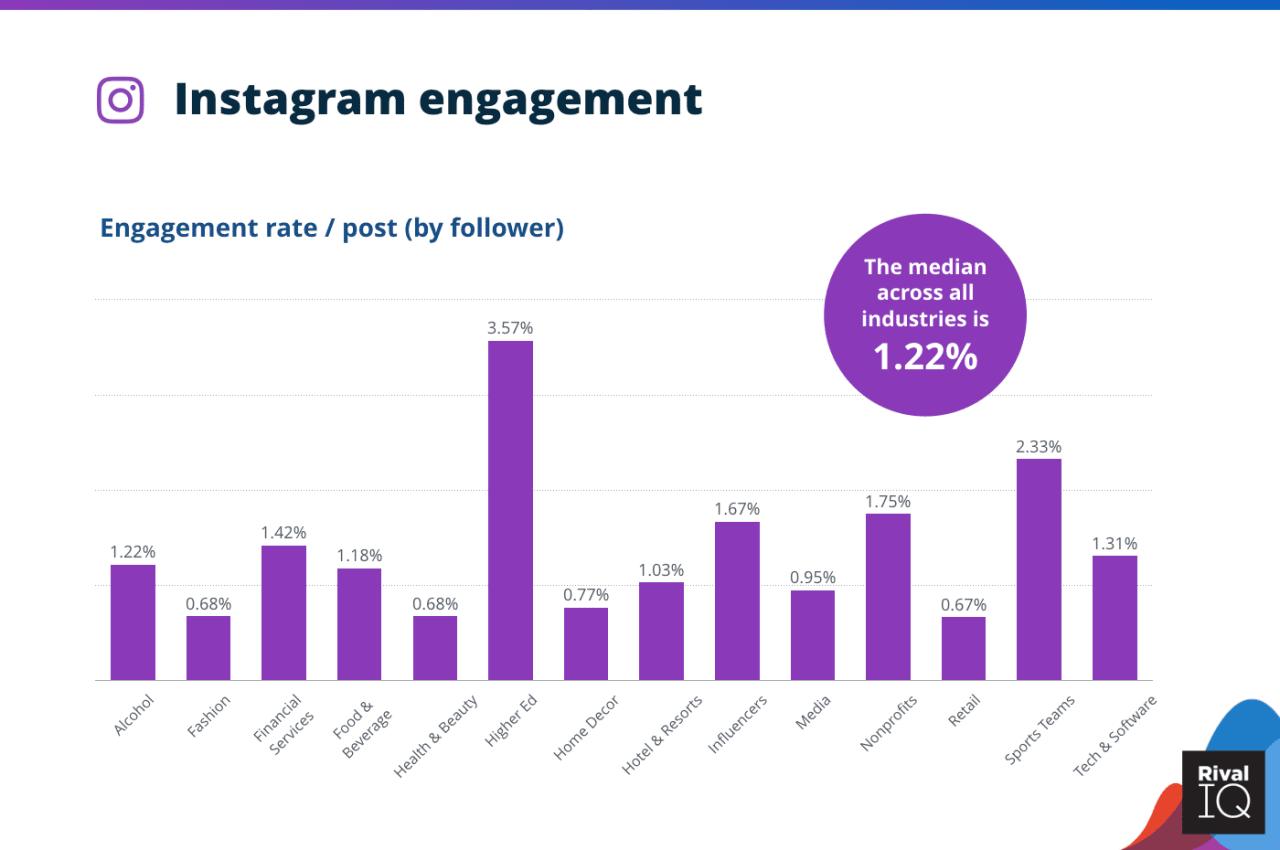
Monitoring social media engagement is crucial for businesses to understand their audience and optimize their strategies. There are various tools available to track and analyze social media metrics, providing valuable insights for decision-making.
Social Media Analytics Tools
- Sprout Social: Allows businesses to monitor engagement across multiple social media platforms, providing detailed analytics and reporting.
- Hootsuite: Offers scheduling, monitoring, and analytics features to track engagement metrics and optimize content strategy.
- Buffer: Helps businesses schedule posts, analyze performance, and engage with their audience on social media platforms.
How Businesses Can Utilize These Tools
- Track Engagement: Use these tools to monitor likes, shares, comments, and other interactions to gauge audience interest.
- Analyze Trends: Identify patterns in engagement metrics to understand what content resonates with the target audience.
- Optimize Strategy: Utilize insights from these tools to refine social media strategies, including content creation and posting schedules.
Interpreting Data for Informed Decisions
- Engagement Rate: Measure the percentage of interactions compared to the total audience size to assess the effectiveness of social media campaigns.
- Click-Through Rate (CTR): Analyze the percentage of clicks on a post or link to evaluate the performance of call-to-action (CTA) strategies.
- Social Reach: Determine the number of unique users who have seen a post to understand the reach of social media content.
Strategies to Improve Social Media Engagement
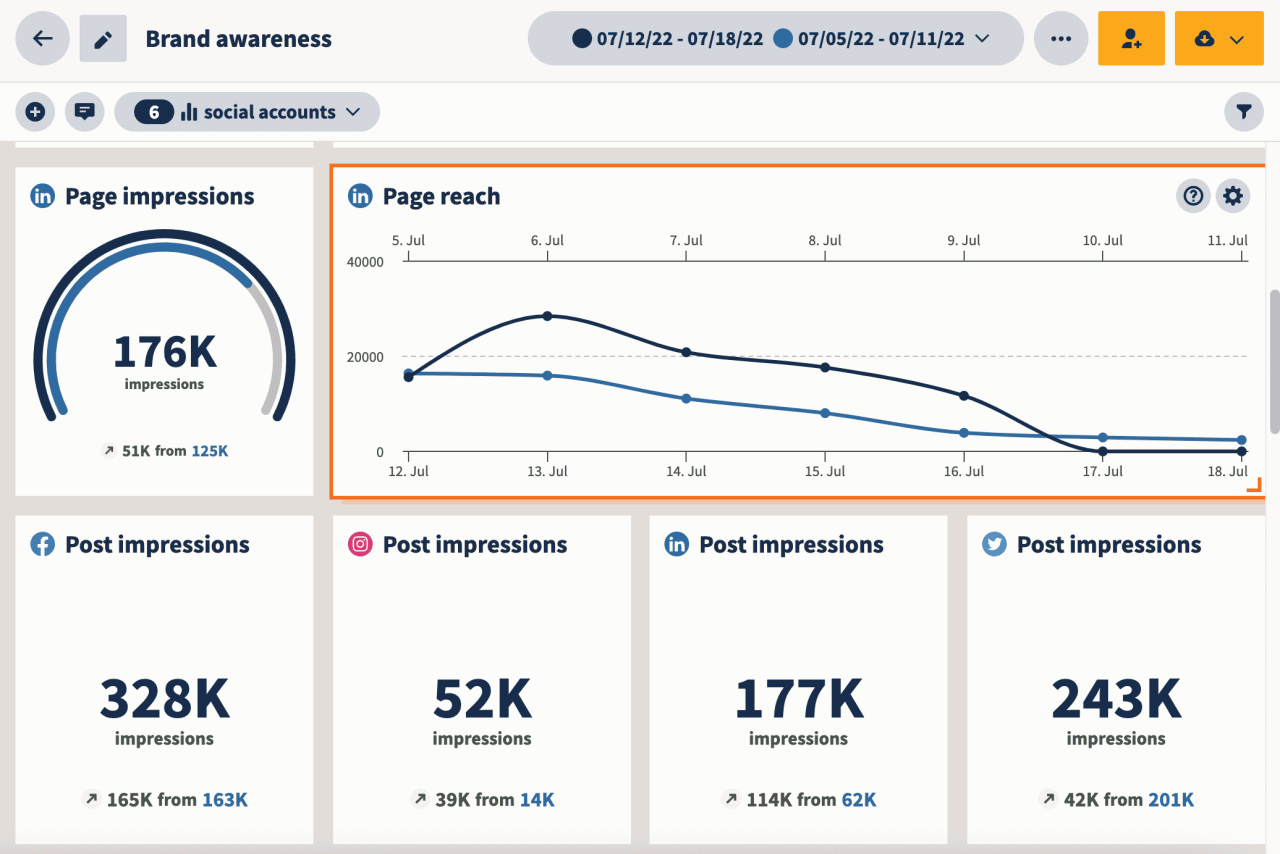
Increasing social media engagement is crucial for building a strong online presence and connecting with your audience. Here are some practical tips to boost likes, comments, shares, and overall engagement on social media platforms.
The Role of Compelling Content
Compelling content is key to driving engagement on social media. Make sure your posts are relevant, informative, and interesting to your target audience. Use catchy headlines, compelling visuals, and storytelling to capture your followers’ attention.
The Power of Visuals
Visual content, such as images and videos, tends to perform better on social media than plain text posts. Incorporate eye-catching visuals into your posts to increase engagement. Infographics, GIFs, and videos are great ways to make your content more engaging and shareable.
Timing is Everything, Social media engagement metrics
Posting at the right time can significantly impact your engagement metrics. Pay attention to when your audience is most active on social media and schedule your posts accordingly. Experiment with different posting times to see which ones generate the most engagement.
Examples of Successful Social Media Campaigns
- Starbucks’ #RedCupContest: Starbucks encouraged customers to share photos of their holiday-themed red cups on social media for a chance to win prizes. This campaign generated a lot of user-generated content and engagement.
- Oreo’s Daily Twist Campaign: Oreo posted a different creative image every day for 100 days to celebrate its 100th anniversary. This campaign kept followers engaged and excited to see what Oreo would come up with next.
- Dove’s Real Beauty Campaign: Dove’s campaign focused on promoting body positivity and self-love. By sharing empowering stories and messages, Dove was able to create a strong emotional connection with its audience and boost engagement.
Measuring the Effectiveness of Social Media Engagement
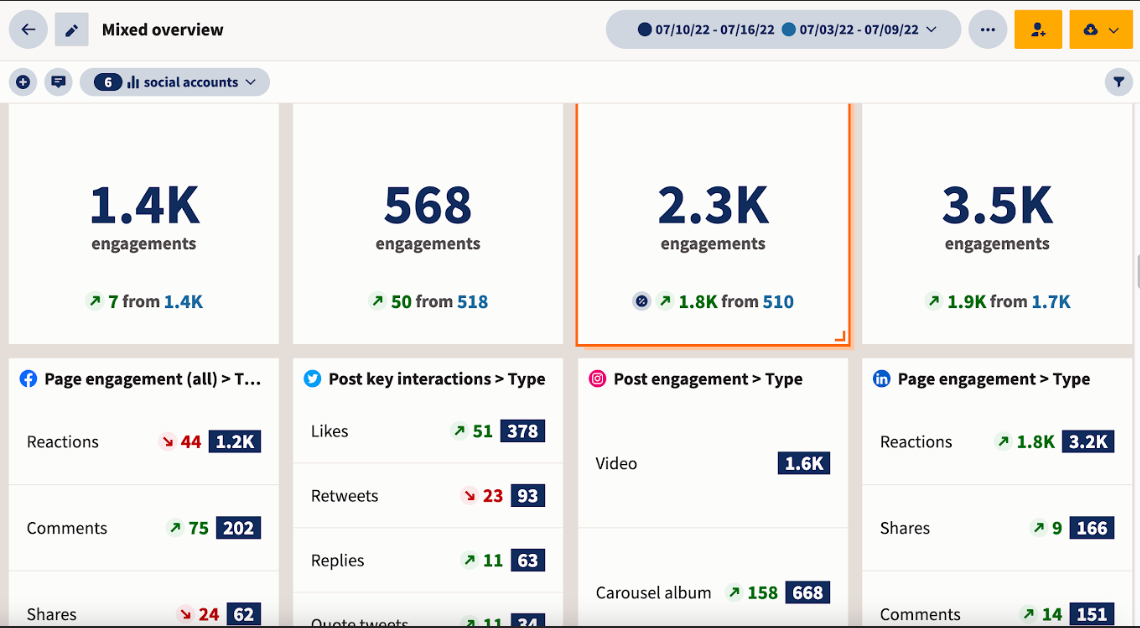
In order to measure the effectiveness of social media engagement, it is crucial to set benchmarks and goals that align with your overall marketing objectives. These benchmarks will serve as a reference point to gauge the success of your social media efforts.
Setting Benchmarks and Goals
- Establish clear and specific objectives for your social media engagement, such as increasing brand awareness, driving website traffic, or generating leads.
- Define key performance indicators (KPIs) that are relevant to your goals, such as likes, shares, comments, click-through rates, or conversion rates.
- Consider industry benchmarks and competitor analysis to understand what success looks like in your sector.
Tracking Progress and Adjusting Strategies
- Regularly monitor your social media engagement metrics to track progress towards your goals.
- Use analytics tools to identify trends, patterns, and areas for improvement in your social media strategy.
- Adjust your strategies based on the results to optimize performance and achieve better outcomes.
Analyzing Impact on Marketing Objectives
- Assess how social media engagement metrics contribute to your overall marketing objectives, such as increasing brand visibility, driving sales, or building customer loyalty.
- Analyze the correlation between engagement metrics and key business outcomes to understand the impact of social media on your bottom line.
- Use data-driven insights to refine your marketing strategies and allocate resources effectively for maximum ROI.
Top FAQs
How can businesses utilize social media engagement metrics effectively?
Businesses can leverage social media engagement metrics to analyze their audience’s interactions, track content performance, and optimize their overall social media strategies for better engagement and reach.
What are some key indicators of successful social media engagement?
Key indicators include high levels of likes, comments, shares, and saves, which demonstrate active audience participation and interest in the content being shared.
Why is it important to track progress and adjust strategies based on social media engagement metrics?
Tracking progress helps businesses understand what works and what doesn’t in their social media campaigns. By adjusting strategies based on engagement metrics, businesses can improve their content and overall performance.



